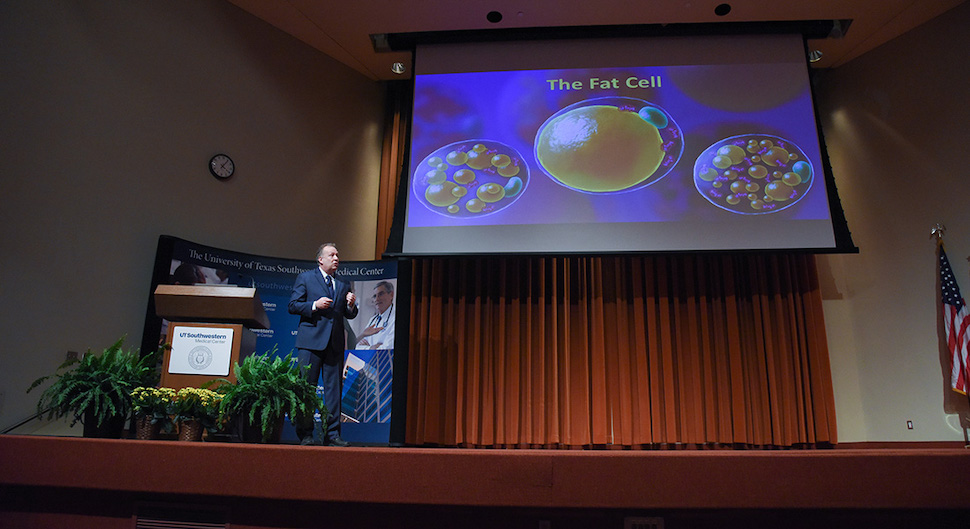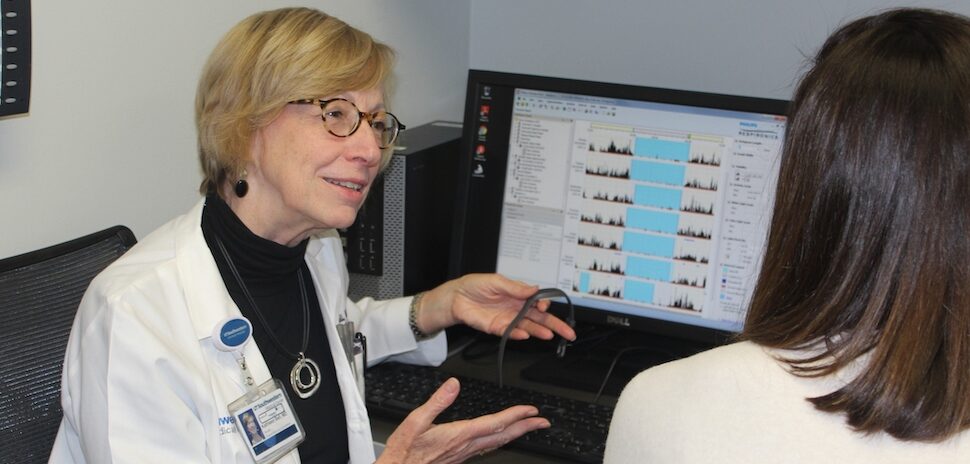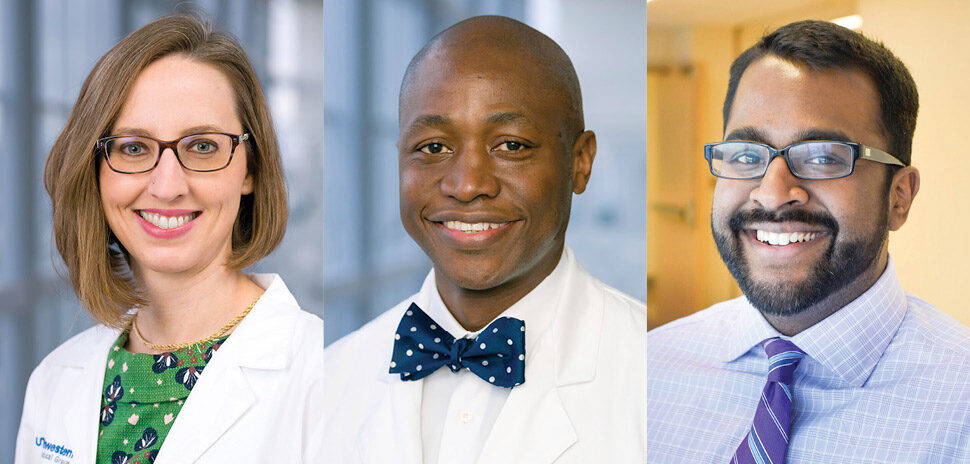Dallas’ UT Southwestern Medical Center has been selected as one of 12 National Institutes of Health Nutrition Obesity Research Centers in the U.S.—and is the only institution in Texas on the list. The mission: Investigate the causes, prevention, and treatment options for obesity, which UTSW describes as a chronic disease affecting more than 40% of the U.S. population, with medical costs nearing $175 billion.
UT Southwestern says it has more than 150 scientists spanning dozens of departments in fields ranging from metabolism to genetics that will be part of the elite NIH-funded, university-wide interdisciplinary research center.
“The UT Southwestern Nutrition Obesity Research Center provides an important mechanism to accelerate translation of basic scientific discoveries into clinically relevant interventions to improve public health,” Jay Horton, M.D., director of the Center for Human Nutrition at UT Southwestern and director of the new Nutrition Obesity Research Center.
$6.15 million in grant funding over five years
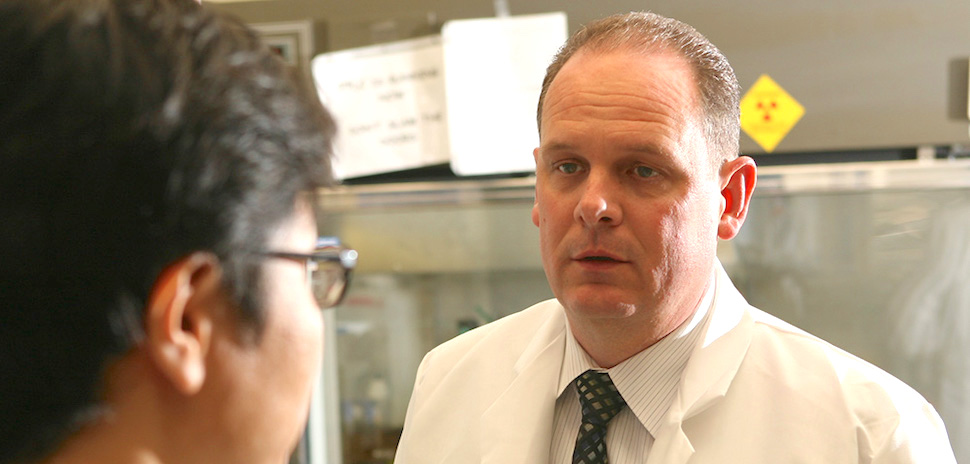
Dr. Jay Horton, director of the UT Southwestern Nutrition Obesity Research Center. [Photo: UTSW]
UT Southwestern said it will receive $6.15 million in grant funding over five years from the National Institute of Diabetes and Digestive and Kidney Diseases. A renowned group of scientists are counted among the center’s faculty—three Nobel Laureates, 11 members of the National Academy of Sciences, seven members of the National Academy of Medicine, and seven Howard Hughes Medical Institute Investigators.
Over the past 20 years, obesity in this country has risen steadily from 30% to 42%, with the prevalence of severe obesity nearly doubling to 9.2%, according to the National Health and Nutrition Examination Survey from the CDC
Medical costs for obese adults are more than $1,800 higher than for those with healthy weight, and people of color have been hit hard by obesity with it being reported in nearly 50% of non-Hispanic black adults, more than 45% of Hispanic adults, 41% of non-Hispanic white adults, and 16% of non-Hispanic Asian adults.
UTSW said that obesity-related conditions include heart disease, stroke, Type 2 diabetes, nonalcoholic fatty liver disease, and several types of cancer, all among the leading causes of preventable, premature death, according to the CDC.
Translating scientific discoveries into ‘new therapeutic strategies’
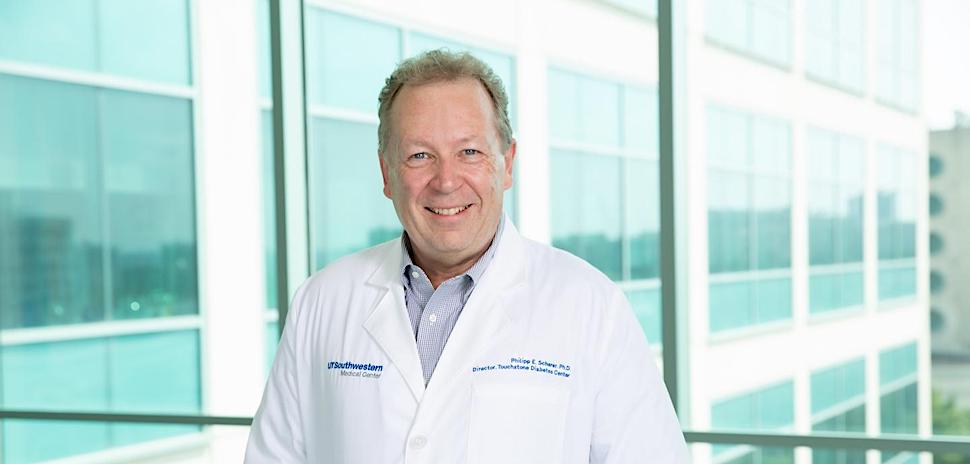
Philipp Scherer, Ph.D., associate director of the UT Southwestern Nutrition Obesity Research Center. [Photo: UTSW]
“Ultimately, our goal is to enhance the innovative nutrition and obesity research these investigators are currently engaged in and facilitate the translation of basic scientific discoveries into new therapeutic strategies for the prevention and treatment of obesity and the metabolic syndrome,” said Philipp Scherer, Ph.D., professor of internal medicine and cell biology at UT Southwestern, director of the Touchstone Diabetes Center, and associate director of the Nutrition Obesity Research Center.
The Obesity Center’s research base consists of 158 investigators from 27 different departments, along with members of UT Southwestern’s Peter O’Donnell Jr. Brain Institute, Harold C. Simmons Comprehensive Cancer Center, Center for Human Nutrition, Peter O’Donnell Jr. School of Public Health, and UT Southwestern School of Health Professions.
Research support totaling more than $74 million a year
Together, those researchers have 230 nutrition and obesity-related research grants and research support totaling more than $74 million a year, including funding from the NIH, Department of Defense, Howard Hughes Medical Institute, American Diabetes Association, National Cancer Institute, and the Cancer Prevention and Research Institute of Texas.
UT Southwestern said it has continued to strengthen its expertise in the field with assistance from the state of Texas, which provided $8 million per year for obesity-related research to UT Southwestern in 2009-11 and $6.5 million in subsequent years (2011-19). The medical center said in a statement that the funding not only helped demonstrate the commitment of UT Southwestern and the state of Texas to addressing the epidemic, but also facilitated the development of the current diverse and accomplished group of investigators that comprise the new center.
“We’ve assembled a highly interactive and collaborative interdisciplinary team of investigators with a goal of defining the behavioral, metabolic, genetic, and molecular mechanisms contributing to obesity and obesity-induced disease,” said Dr. Horton, professor of Internal medicine in the Division of Digestive and Liver Diseases, with a secondary appointment in Molecular Genetics.
Four UTSW teams are on the case
To facilitate interdisciplinary research and the exchange of ideas, the UTSW Nutrition Obesity Research Center has created four thematically related teams:
- Team 1: Central Regulation of Energy Metabolism
- Team 2: Adipocyte Biology and Energy Metabolism
- Team 3: Obesity-Induced Peripheral Organ Disease
- Team 4: Nutrition, Obesity, and Cancer
“Within each team, we’ve integrated basic and translational scientists from a wide spectrum of disciplines to comprehensively address the biochemical, metabolic, and clinical consequences of obesity and obesity-related diseases,” Horton said.
UT Southwestern said in the statement that a pilot and feasibility program directed by Joel Elmquist, DVM, Ph.D., an associate director of the Nutrition Obesity Research Center, and Joyce Repa, Ph.D., associate professor of physiology and internal medicine, will support early-stage projects of four new investigators per year.
An Enrichment Program, led by Jeffrey Zigman, M.D., Ph.D., professor of internal medicine and a principal investigator in the Center for Hypothalamic Research, will provide enhanced educational opportunities for graduate students, postdoctoral fellows, and faculty interested in performing basic science and translational research related to nutrition, obesity, and obesity-related diseases.
Services include Lipid Mass Spectrometry
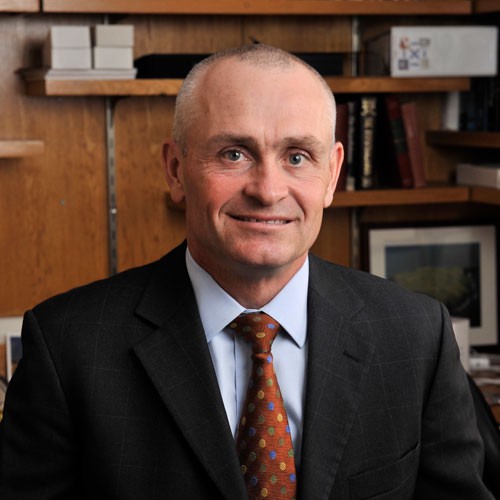
Joel Elmquist, DVM, Ph.D. Associate Director of the UT Southwestern Nutrition Obesity Research Center. [Photo: UTSW]
UTSW said that four cores and a clinical element have been established to provide state-of-the art services: Animal Phenotyping/Metabolism Core; Lipid Mass Spectrometry Core; Quantitative Metabolism and Imaging Core; and Genetics, Single Cell Sequencing, and RNA Sequencing Core.
Elmquist holds the Maclin Family Distinguished Professorship in Medical Science, in Honor of Dr. Roy A. Brinkley, and the Carl H. Westcott Distinguished Chair in Medical Research.
Horton holds the Center for Human Nutrition Director’s Endowed Chair, the Scott Grundy Director’s Chair, The Dr. Robert C. and Veronica Atkins Chair in Obesity & Diabetes Research, and the Distinguished University Chair in Human Nutrition.
Scherer holds the Gifford O. Touchstone, Jr. and Randolph G. Touchstone Distinguished Chair in Diabetes Research and the Touchstone/West Distinguished Chair in Diabetes Research.
Zigman holds the Kent and Jodi Foster Distinguished Chair in Endocrinology, in Honor of Daniel Foster, M.D., The Diana and Richard C. Strauss Professorship in Biomedical Research, and the Mr. and Mrs. Bruce G. Brookshire Professorship in Medicine.
UT Southwestern is one of the nation’s premier academic medical centers, integrating pioneering biomedical research with exceptional clinical care and education. Its faculty has received six Nobel Prizes, and includes 26 members of the National Academy of Sciences, 17 members of the National Academy of Medicine, and 14 Howard Hughes Medical Institute Investigators.
The full-time faculty of more than 2,900 is responsible for groundbreaking medical advances and is committed to translating science-driven research quickly to new clinical treatments, UTSW said in a statement. UT Southwestern physicians provide care in more than 80 specialties to more than 100,000 hospitalized patients, more than 360,000 emergency room cases, and oversee nearly 4 million outpatient visits a year.
![]()
Get on the list.
Dallas Innovates, every day.
Sign up to keep your eye on what’s new and next in Dallas-Fort Worth, every day.










